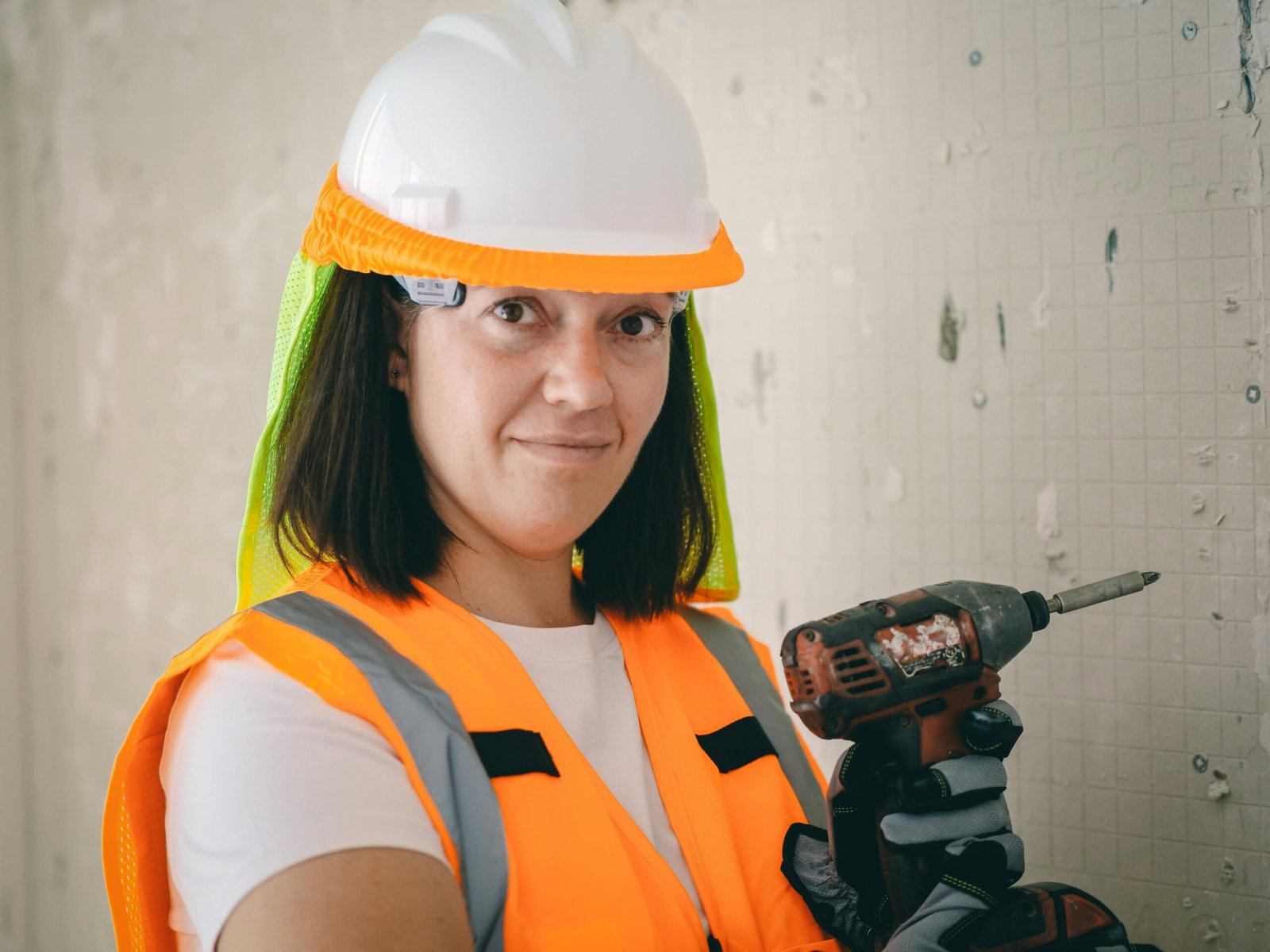In recent years, the trend of sustainable construction has gained significant traction and reclaiming, reusing and recycling has become more common in the renovation industry. Reclaimed home building materials are being salvaged from older buildings, renovations, or industrial projects. These materials can be reused to reduce waste and minimize environmental impact. Reclaimed home building materials such as windows, doors, wood flooring and more not only contribute to sustainability but also add personality and charm to your home.
These recycled materials are eco-friendly and budget-friendly, and 50-70% more affordable than the new construction materials. Recycled building materials can add a unique touch to your construction project.
However, it is important to note that using poor quality of reclaimed materials can expose you to any potential construction claims. To avoid this risk, you need reliable sources that prioritize the integrity, quality, and legal standards of reclaimed materials.
Let’s explore how to find quality reclaimed home building materials that meet construction standards:
1. Architectural Salvage Yards
Architectural salvage yards are some of the best places to find high-quality reclaimed building materials. These yards specialize in salvaging materials from demolition sites, old buildings, and renovations. There are many online architectural salvage shops from where you find wood, bricks, doors, windows, flooring, and hardware for your construction project.
Why Choose Architectural Salvage Stores?
Salvage yards often inspect materials for quality and structural integrity before offering them for resale.
- They typically provide a history of the materials, including their original source, which can help you ensure they are legally sourced.
- Many salvage yards have trained staff who can guide you on how to use the materials safely.
Examples: Olde Good Things, The Rebuilding Center
2. Online Reclaimed Building Material Marketplaces
If you don’t have access to a local salvage yard, online marketplaces can provide a vast array of reclaimed materials. Many platforms allow sellers to list their reclaimed materials, and you can often find items from all over the country or even internationally.
Why Choose Reusable Home Building Materials Marketplaces?
- Online platforms usually allow sellers to provide detailed descriptions of the materials and sometimes even their provenance.
- Many platforms offer buyer protection, return policies, and customer reviews, which can help ensure you’re purchasing high-quality materials.
- Some marketplaces specifically cater to the reclaimed materials niche, ensuring that the products meet certain standards.
Examples: Etsy, Reclaimed Wood Exchange, PlanetReuse
3. Reclaimed Lumber Dealers
Reclaimed lumber is a highly sought-after material for its beauty, durability, and history. Many dealers specialize in sourcing, processing, and selling recycled wood, such as barn wood, flooring, beams, and siding.
Why Choose Recycled Lumber Stores?
- Reclaimed lumber dealers are often experts in identifying high-quality wood that has been properly aged, treated, and inspected for structural integrity.
- Some lumber stores provide certifications that verify the source and authenticity of the lumber, which is crucial for avoiding potential legal issues.
- Many reputable reclaimed lumber shops will also have policies in place to ensure the proper treatment of wood to prevent issues like mold, pests, or rot.
Examples: Reclaimed Wood Co, Vintage Timberworks,
4. Local Construction and Demolition Companies
Another resource for finding reclaimed materials is working directly with local demolition or deconstruction companies. As opposed to large-scale commercial demolition, deconstruction involves carefully dismantling buildings to salvage reusable materials.
Why Choose Construction and Demolition Companies?
- Deconstruction companies typically de-nail, clean, and treat materials, ensuring they are safe for reuse.
- These companies may provide detailed records of the materials’ provenance and conditions, offering peace of mind for legal and safety compliance.
- Purchasing directly from a deconstruction company can help reduce the risk of buying subpar or unregulated materials.
Examples: Green Demolitions, Salvage Works
5. Reclaimed Building Material Auctions
Building material stock clearance auctions, either online or in person, can be a goldmine for finding reclaimed materials at a competitive price. Many free leftover building materials auctions are dedicated to materials salvaged from buildings or projects that no longer need them.
Why Choose Reclaimed Building Material Auctions?
- Building supplies online auctions often require sellers to disclose the condition and history of the materials they are selling.
- These online building material auctions provide an opportunity for you to inspect materials in person (if available locally) before making a purchase.
- Some auction houses specialize in construction-grade materials, offering a curated selection that meets legal and safety standards.
Examples: Auction.com, GovDeals
6. Social Media and Local Classifieds
There are some platforms such as Facebook Marketplace, Craigslist, and local community boards that are considered a valuable source for finding reclaimed building materials. Many individuals or small businesses sell reclaimed materials through these platforms.
Why Choose Facebook Marketplace or Local Classifieds?
- Buyers easily contact sellers directly, allowing for transparency regarding the condition and origin of materials.
- Social media platforms often provide ratings, reviews, or feedback from previous transactions, which can help verify the reliability of the seller.
- However, be cautious with these resources as materials may not always meet building codes or regulations, so it’s essential to inspect them thoroughly.
7. Salvage and Reclamation Organizations
Non-profit organizations and advocacy groups focused on sustainability and waste reduction may also be excellent resources for sourcing reclaimed materials. These organizations often run donation and resale programs to fund their environmental missions.
Why Choose Salvage and Reclamation Organizations?
- These organizations often inspect, clean, and treat the materials to ensure they’re safe and usable.
- They provide full transparency regarding the sourcing of materials, which reduces the risk of any legal or construction claims down the road.
- Purchasing from such organizations supports community-driven efforts for sustainability.
Examples: Habitat for Humanity ReStores, Construction Junction
Important Tips When Choosing Reclaimed Home Building Materials
Here are some tips to help you choose the best quality reclaimed home building materials:
- Inspect Materials Thoroughly: Whether buying from a salvage yard, auction, or individual seller, always inspect the materials in person or request photos and documentation.
- Check for Certifications: Many reclaimed material suppliers provide certifications that the materials meet safety and legal standards. Ensure you ask for these documents when purchasing.
- Know the Source: Understand where the materials came from. Materials from old industrial sites or hazardous environments might contain lead, asbestos, or other harmful substances.
- Consult with Professionals: Before starting construction, it’s a good idea to consult with an architect or contractor familiar with working with reclaimed materials to ensure proper usage and compliance with local building codes.
Conclusion
It’s essential to choose reclaimed materials with caution to ensure that the materials meet safety standards and legal regulations. While using reclaimed materials offers many benefits, it’s important to ensure the materials you’re using are of good quality and compliant with building codes.
By sourcing materials from reputable sellers and conducting thorough inspections, you can integrate reclaimed materials into your home-building project while minimizing the risk of future construction claims. In case of any construction claims, you can hire a team which offers construction claims consulting to avoid dispute and litigation. This strategy ensures that your project is both sustainable and compliant with legal regulations.



